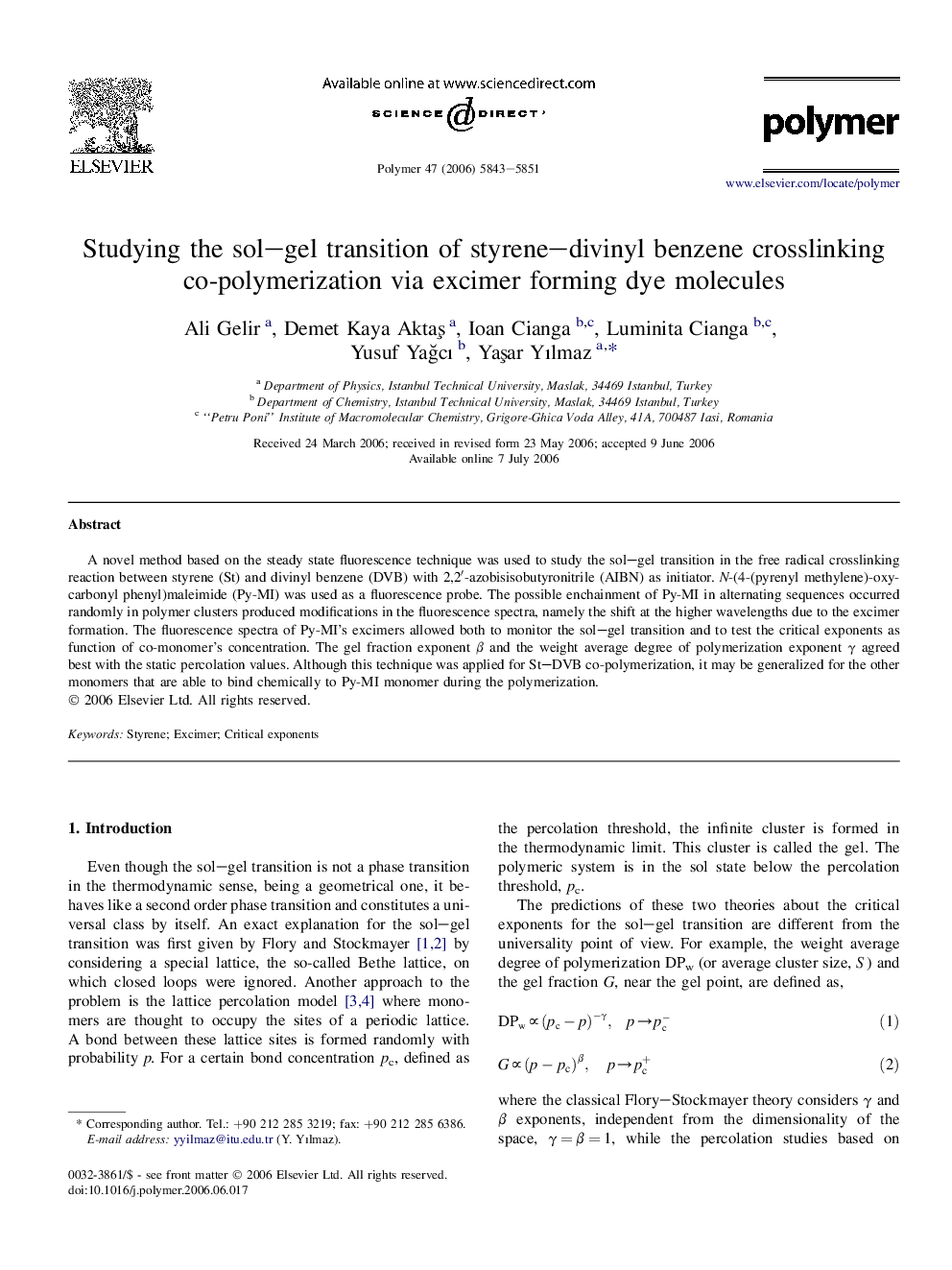| Article ID | Journal | Published Year | Pages | File Type |
|---|---|---|---|---|
| 5190646 | Polymer | 2006 | 9 Pages |
Abstract
A novel method based on the steady state fluorescence technique was used to study the sol-gel transition in the free radical crosslinking reaction between styrene (St) and divinyl benzene (DVB) with 2,2â²-azobisisobutyronitrile (AIBN) as initiator. N-(4-(pyrenyl methylene)-oxycarbonyl phenyl)maleimide (Py-MI) was used as a fluorescence probe. The possible enchainment of Py-MI in alternating sequences occurred randomly in polymer clusters produced modifications in the fluorescence spectra, namely the shift at the higher wavelengths due to the excimer formation. The fluorescence spectra of Py-MI's excimers allowed both to monitor the sol-gel transition and to test the critical exponents as function of co-monomer's concentration. The gel fraction exponent β and the weight average degree of polymerization exponent γ agreed best with the static percolation values. Although this technique was applied for St-DVB co-polymerization, it may be generalized for the other monomers that are able to bind chemically to Py-MI monomer during the polymerization.
Keywords
Related Topics
Physical Sciences and Engineering
Chemistry
Organic Chemistry
Authors
Ali Gelir, Demet Kaya AktaÅ, Ioan Cianga, Luminita Cianga, Yusuf YaÄcı, YaÅar Yılmaz,
